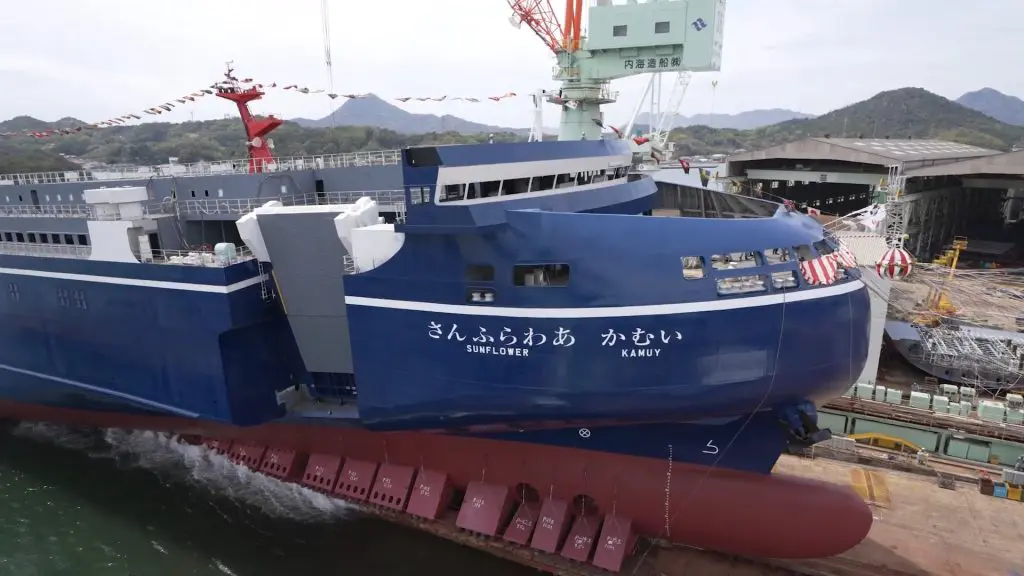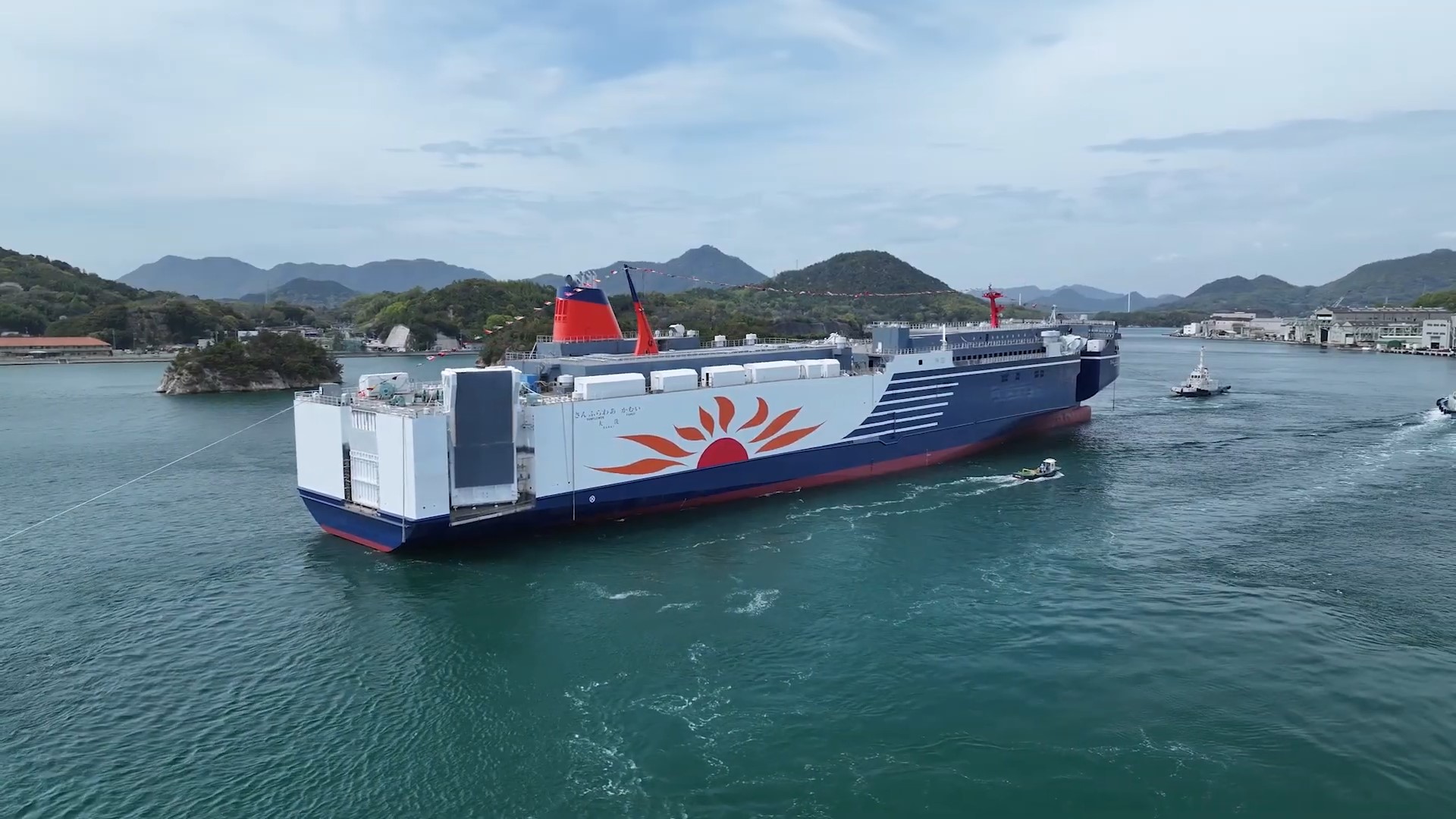Japan’s shipping giant MOL expects its third LNG-powered ferry, Sunflower Kamuy, to enter service on the late-night Oarai-Tomakomai route in early 2025.
MOL said on Thursday that a naming and launching ceremony for the LNG-powered vessel took place at Naikai Zosen’s Inoshima yard.
This is the first of two LNG-fueled ferries MOL ordered at Naikai Zosen in February 2022.
Naikai Zosen will deliver the vessel in December 2024 and after that it will start working on the route operated by MOL Sunflower.
Also, the second of the two new vessels is scheduled to enter service on the same route within 2025, according to MOL.
With the addition of these vessels, MOL will operate a fleet of four LNG-fueled ferries on east-west routes in Japan by 2025, joining the Sunflower Kurenai and Sunflower Murasaki, which went into service on the Osaka-Beppu route in 2023.

MOL has set a target to operate 90 LNG-powered and methanol-fueled vessels by 2030, and the firm recently took delivery of the LNG dual-fuel car carrier, Cerulean Ace.
Methane slip reduction
MOL said in a separate statement on Thursday that the company and its partners Hitachi Zoshen and Yanmar Power Technology achieved a 93.8 percent of reduction rate (at an engine load rate of 100 percent) in the development of the technology to reduce methane slip from LNG-fueled vessels through catalyst and engine improvements.
This project was adopted by the New Energy and Industrial Technology Development Organization (NEDO), while the achievement of the reduction rate was confirmed by ClassNK through the statement of fact (SOF) for the first time in the world, MOL said.
MOL said the project aims to achieve a 70 percent or more reduction in methane slip from LNG-fueled vessels by combining methane oxidation catalyst and engine improvements during the six-year period from fiscal 2021 to fiscal 2026.
It also aims to socially implement technology for reducing methane slip, which has not been established even on land, in the field of marine transportation, ahead of the rest of the world, the firm said.
In 2022, Hitachi Zosen and Yanmar developed the methane oxidation catalyst system, which reduces methane slip by oxidizing methane emitted from marine engines fueled by LNG, and received NK’s approval in principle.
MOL said that the demonstration test will start in the autumn of 2024 on the large coal carrier, Remei, operated by MOL.

